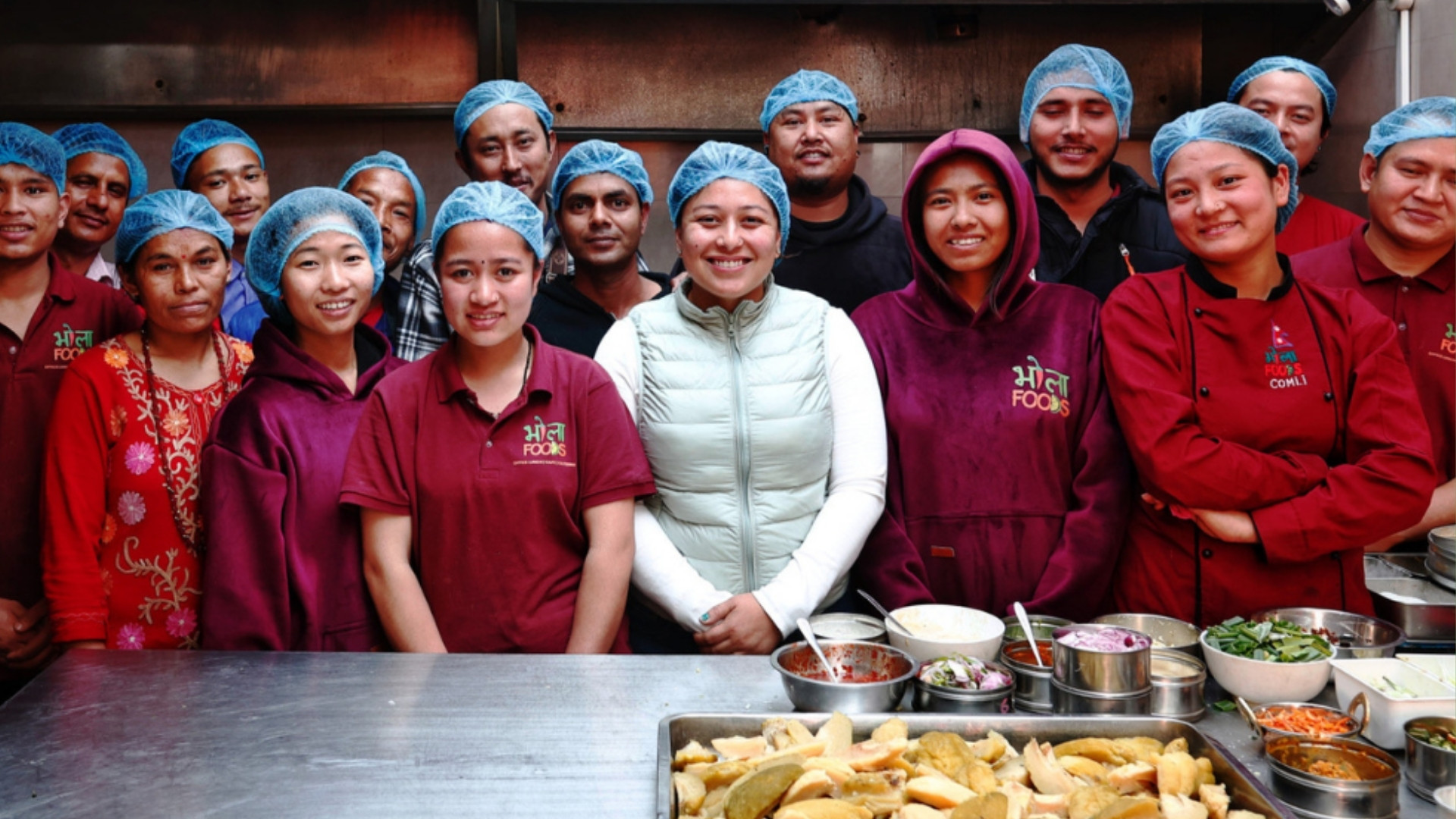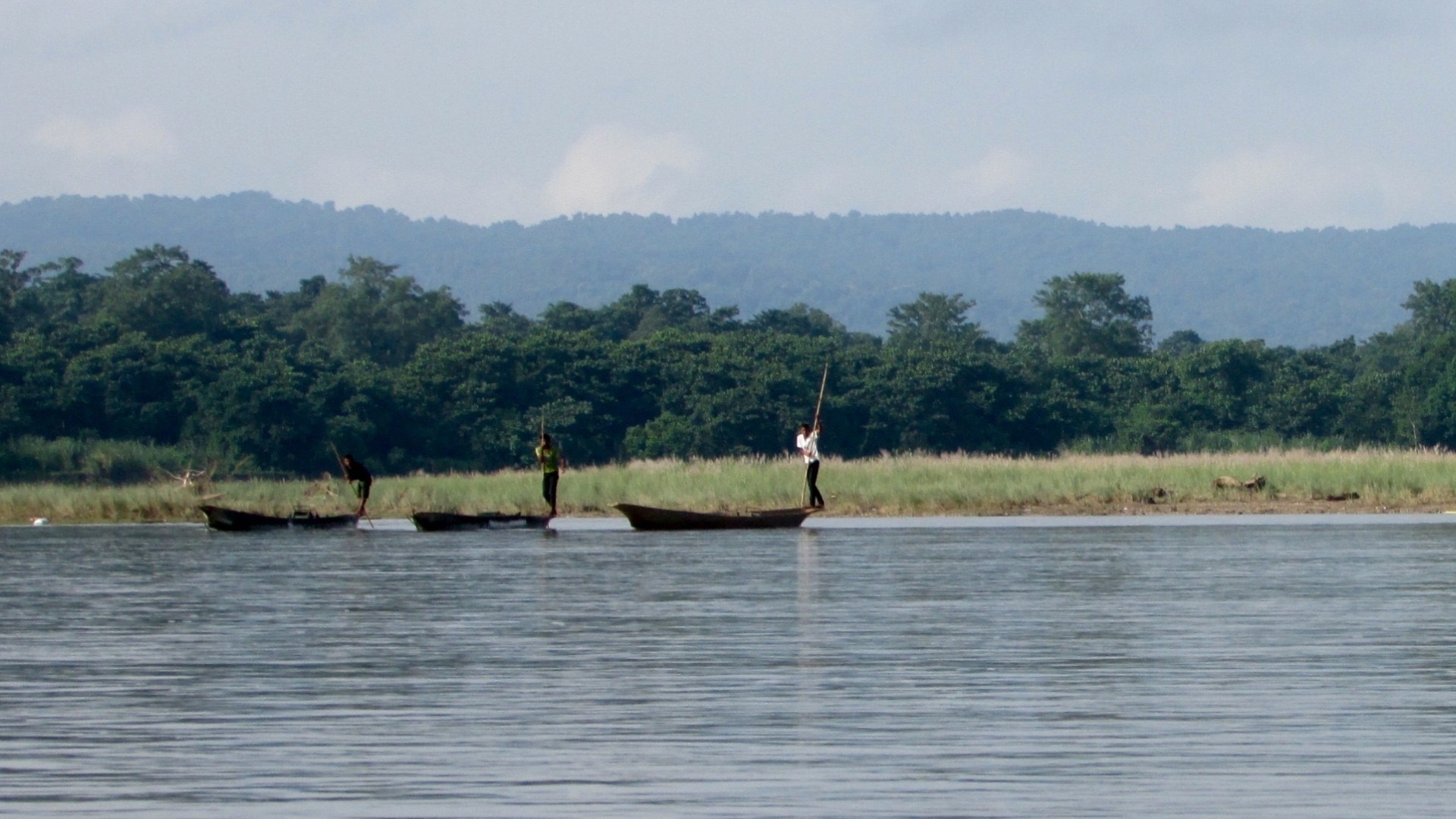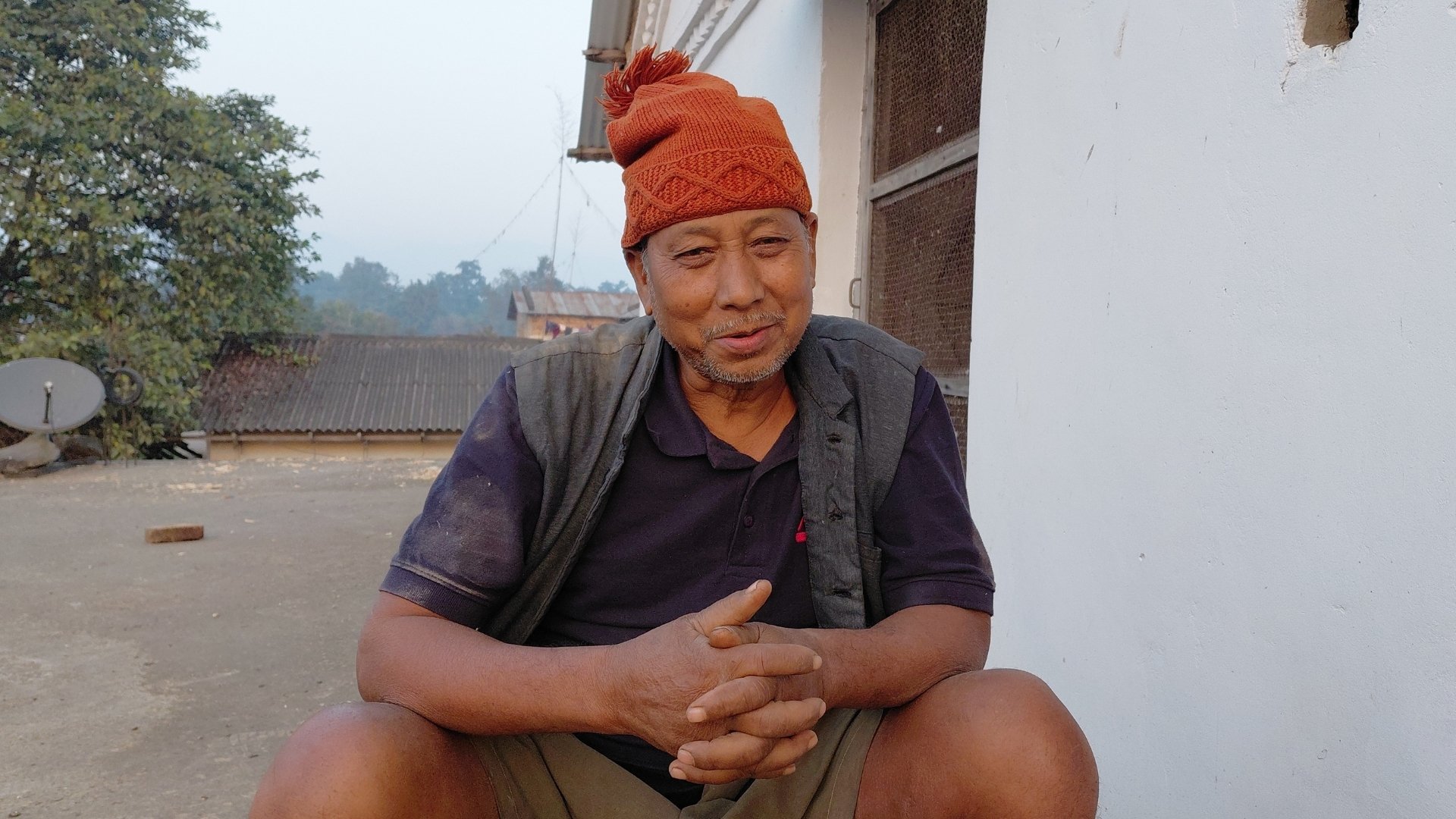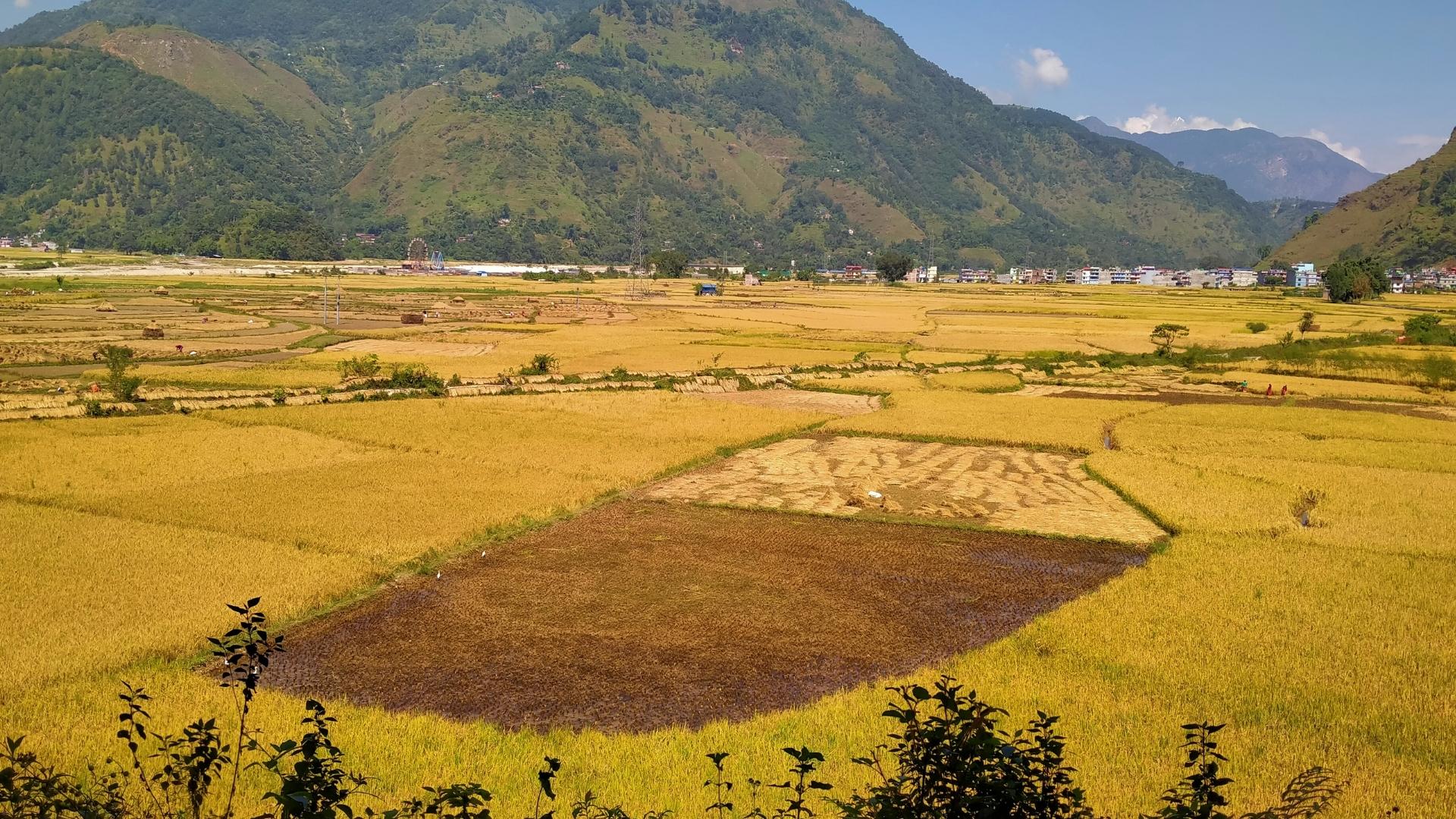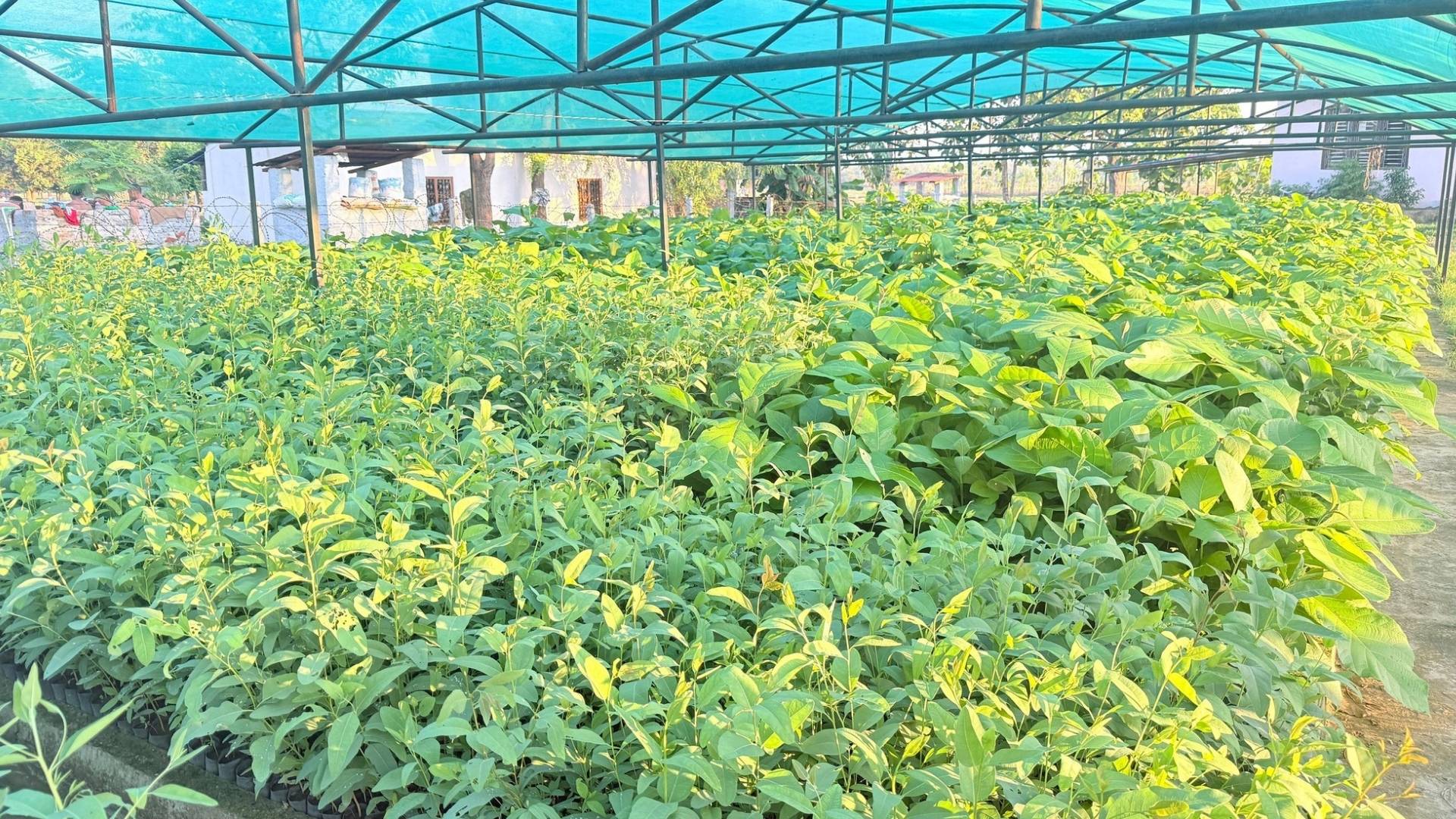After a long anticipation, SharkTank Nepal finally premiered on July 2, 2025, marking a significant milestone for Nepal’s startup culture. Broadcast on Himalayan Television, this show provides a platform where Nepali startups can present their business ideas to a panel of accomplished business leaders (Sharks).
In this inaugural episode, four businesses presented their ideas to the Sharks. Let’s take a look at how things unfolded.
Bhola Foods
Bhola Food — an aspiring Nepali startup serving authentic Nepali meals, secured an opening investment deal on the SharkTank platform.
|
Investment Summary |
|
|
Founder |
Sweta Pandey |
|
Investors (Shark) |
Cabinet Shrestha, Saurabh Jyoti, Anand Bagaria, Hem Raj Dhakal |
|
Original Ask |
85 lakh for 12% equity [Valuation: 7.08 crore] |
| Investment Secured |
1 crore for 20% equity [Valuation: 4 crore] |
Started in 2078 BS by Sweta Pandey and her mother, Bhola Foods is a platform providing Nepali meals and snacks tailored for corporate offices and work settings.
Business model and growth
Bhola transitioned to a B2B corporate meal model, serving office lunches and events, which led to the business experiencing remarkable growth.
|
Total Revenue |
% Growth |
|
|
2023 AD |
Rs. 34,00,000 |
— |
|
2024 AD |
Rs. 1,64,00,000 |
382% |
|
2025 AD (targeted) |
Rs. 2,16,00,000 | 31.7% |
On the profitability front, Bhola aims to improve its margin steadily, targeting a 12% profit margin in the current year, up from 7% the previous year, from the core business.
This growth suggests a rising demand for healthy Nepali meals provided by Bhola Food. With its proven core business in the B2B model, Bhola Food is now working to vertically integrate its business, expanding into a new customer segment.
Alongside the regular operation, Bhola Food has also been catering for events on an unofficial basis. This side business has shown a robust potential and presents an opportunity to develop. The team plans to formalize its service as a vegetarian catering wing, specifically targeting family rituals and cultural occasions.
Moreover, Bhola Foods also plans to develop a ready-to-eat (RET) product line, aimed at individual customers who want to enjoy authentic Nepali food with ease and convenience. This new line will ensure traditional dishes are available anytime and anywhere.
Based on the initial research and testing, the RET product has a minimum shelf life of 2 months, making it ideal for local retail distribution. While the core product formulation has been established, the line is still under development.
To take this product to market and scale its next phase of growth, Bhola Food seeks an investment of 85 lakh in exchange for 12% of its equity through Shark Tank.
In this, the major portion of approximately 70% will be dedicated towards RET development — product packaging, conducting market research, and establishing retail distribution channels.
Whereas, the remaining portion will be utilized to promote and formalize the vegetarian catering business, helping Bhola Food to reach more customers and turn this in-demand service into a structured vertical business.
As a result of its growth potential and product design for everyday convenience, Bhola Food secured an investment of Rs. 1 crore in exchange for 20% equity. The pitch impressed 4 sharks — Cabinet Shrestha, Saurabh Jyoti, Anand Bagaria, Hem Raj Dhakal — who came on board as strategic partners to support the brand’s growth.
Sandhya Pote House
Sandhya Pote House — a women-led entrepreneurial venture rooted in cultural craftsmanship and social impact, secured an investment of Rs. 20 lakh in exchange for 35% equity with a 3-year exit window, valuing the company at 57.14 lakh.
|
Investment Summary |
|
|
Founder |
Sandhya Gaire Poudel |
|
Investor (Shark) |
Cabinet Shrestha |
|
Opening Ask |
NRs 20 lakh for 35% equity [Valuation: 57.14 lakh] |
|
Investment Secured |
NRs 20 lakh for 35% equity + exit policy after 3 years [Valuation:57.14 lakh] |
As a digital business that sells traditional pote jewelry — a culturally significant item used in the festive season. Pote House, founded by Sandhya Gaire Poudel, doesn’t just sell products but also functions as a training center, empowering over 5,000 women in the craft of pote making.
Originally launched with an initial investment of Rs. 5,000, the business has grown through a digital media network. By leveraging the power of digital space, the Pote House has built a digital community of over 4,000 followers on Facebook and 5,000 followers on the TikTok platform, with over 1.5 ~ 2 lakh views, effectively promoting its product and reaching a wider audience.
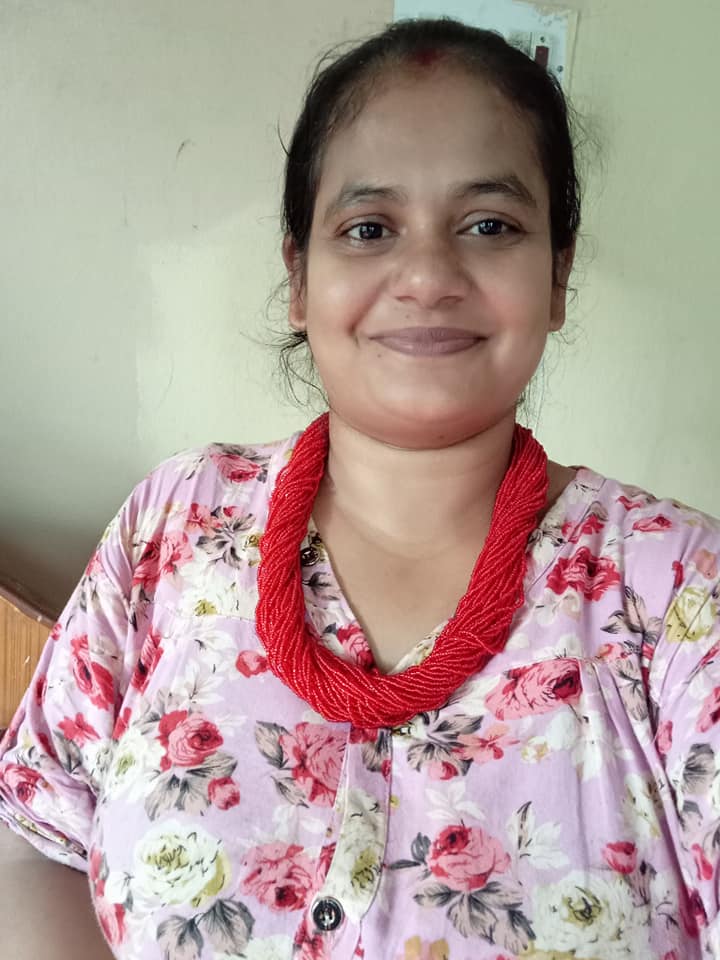
Currently, the business generates approximately Rs. 8 lakh in annual revenue, where 60% of the profit margin comes from B2C, while the remaining from B2B.
The raw materials are primarily sourced from Kathmandu, though they originally come from the Czech Republic and are supplied from China. These materials are available in various grades and categories, with ½ kg of the materials available at prices ranging from NRs 300 to 1,200.
Through Shark Tank Nepal, Pote House seeks to secure an investment of Rs. 20 lakh in exchange for 35% equity. This investment will be utilized to build warehouses, hire more workforce, and expand their operation to meet the increasing demand.
As a result of its culturally rooted vision, revenue-generating potential, and social impact, Sandhya Pote House secured its proposed investment deal with Shark Cabinet Shrestha, with a mutual agreement on a 3-year exit plan.
Elletra
Electra’s attempt to expose flaws sparked scrutiny on its value.
|
Investment Summary |
|
|
Founder |
Susmita Poudel & Arjun Rathor |
|
Original Ask |
Rs. 1 crore for 10% equity [Valuation: 10 Crore] |
|
Investment Secured |
No Deal |
Elletra, founded by Susmita Poudel and Arjun Rathor, presents itself as a cosmetic brand grounded in clinical efficacy and affordability. Their product line includes formulas featuring Vitamin C, Niacinamide, Retinol, and Hyaluronic acid, products commonly found in the skincare market.
The pitch started with a bold claim that many prominent skincare brands operating in Nepal overstate the concentration of active ingredients in their product. The founders supported their arguments through an independent lab test they conducted, which pointed out that many customers are paying a high price for products that may not deliver the promised benefit.

Elletra positioned itself as a more affordable and scientifically backed alternative, whose formulation had been developed through 2 years of Research & Development and medical consultation with their advisor.
As a part of their pitch, the founders asked for Rs. 1 crore in exchange for 10% of their equity. This is seen as an ambitious valuation by Sharks, considering the product is still in the early market phase.
Several other issues also emerged during the discussion. Sharks questioned the depth of their research, especially after knowing that the medical advisor was not a full-time member of their team.
Moreover, the products were manufactured in India and although the brand was designed in Nepal, a absence of local manufacturing raised questions about the domestic value addition. This point carries weight as SharkTank Nepal places strong emphasis in supporting local products.
While Elletra promotes the safety of its products and clinical validation, the absence of an in-house lab and assurance reliant on a third party raises questions about its reliability and quality. Furthermore, the pitch strategy to criticise competitors on market inefficiencies diverted attention from their own product’s value proposition.
Artmaya
Artmaya — a modern design-led furniture brand, secured an investment of Rs. 3 crore in exchange for 30% equity, along with Shark’s support in workshop expansion, warehousing, and logistics.
|
Investment Summary |
|
|
Founder |
Palak Jalan & Kushal Goyal |
|
Investor (Shark) |
Hem Raj Dhakal, Cabinet Shrestha, Saurav Jyoti |
|
Original Ask |
Rs. 1 crore for 6% equity [Valuation: Rs. 12.5 crore] |
|
Investment Secured |
Rs. 3 crore for 30% equity [Valuation: Rs. 10 crore] |
Founded by Palak Jalan & Kushal Goyal, this furniture company redefined affordable luxury in Nepal. In just 4 years, Artmaya has built high-quality, customizable furniture that blends aesthetics with modern design.
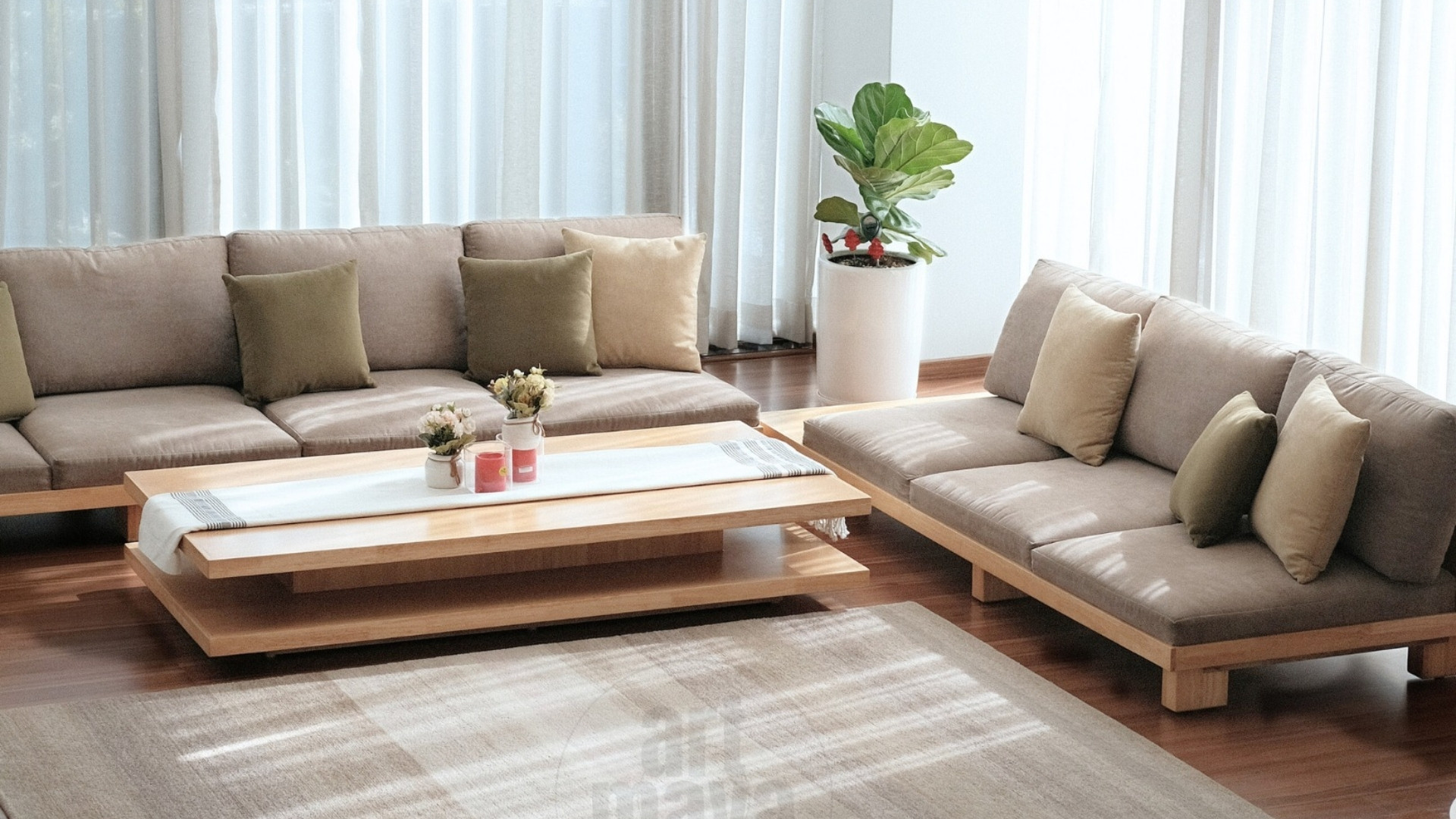
What makes Artmaya stand out is its custom-made approach. With a dedicated team led by Palak herself and a skilled in-house production team, the company ensures each piece meets a high standard at an affordable price. Which 50-55% of the resources are locally sourced, while fabrics are imported to maintain quality.
Revenue Outlook
| Previous year revenue (2023/24) | Rs. 3.6 crore |
|
Year-to-date revenue (2024/25) |
Rs. 4.4 crore |
|
Projected revenue (2024/25) |
Rs. 6.2 crore |
The company caters to both the B2B and B2C markets, with 40-45 business clients and over 1000 retail customers through a dedicated store. With a 3,000 sq. ft. workshop and a production capacity of Rs. 60–65 lakh per month, the brand delivers high-quality furniture packages for homes, including options for full 2BHK setups costing between Rs. 15–18 lakh.
Through the SharkTank Nepal platform, Artmaya initially sought Rs. 1 crore for 6% of its equity, but secured an investment of Rs. 3 crore for 30% equity with three Sharks (Hem Raj Dhakal, Cabinet Shrestha, and Saurav Jyoti). Beyond this, the sharks are also offering extensive support for workshop expansion, warehousing, and logistics to enhance production and boost sales capacity.

